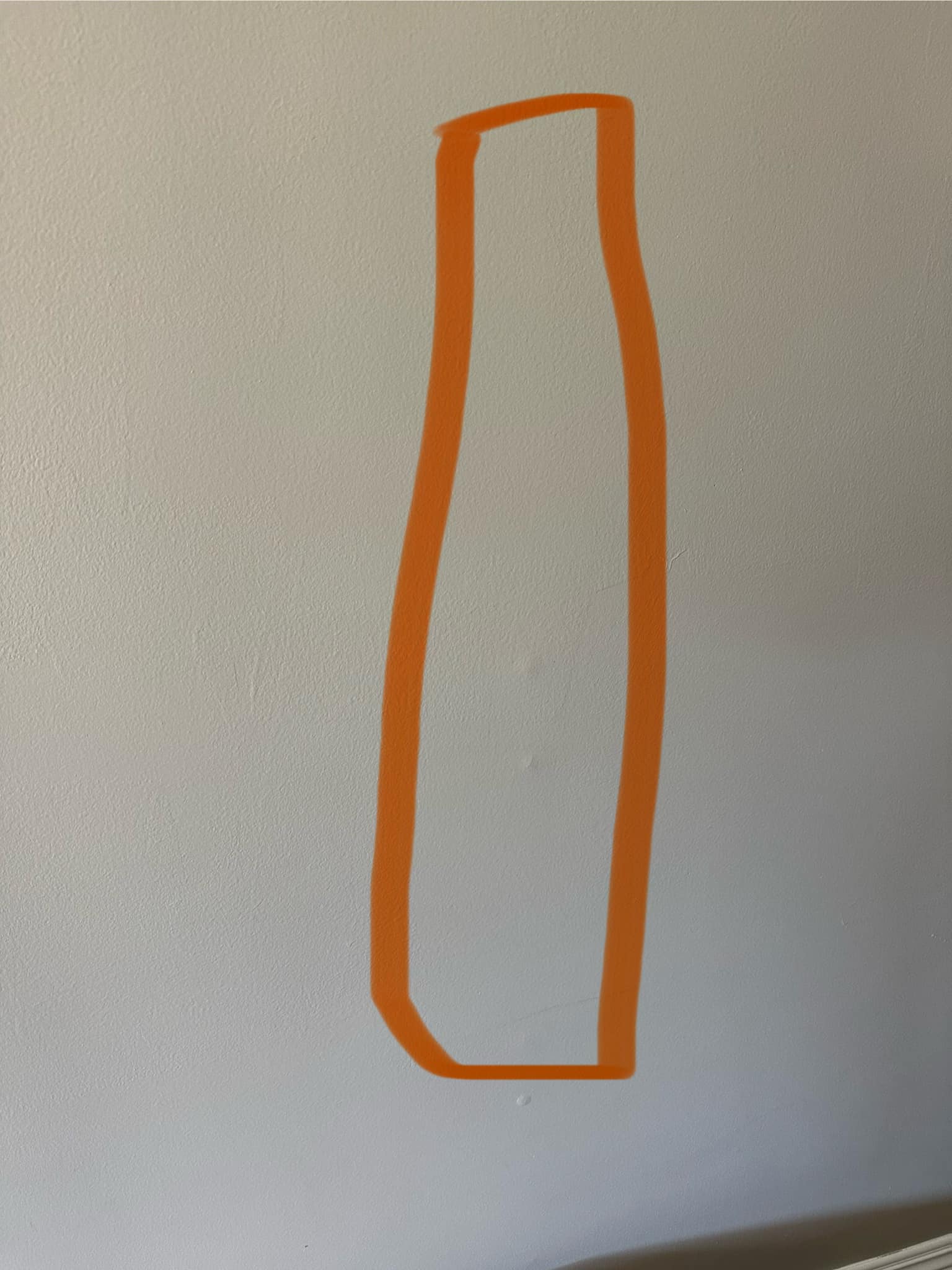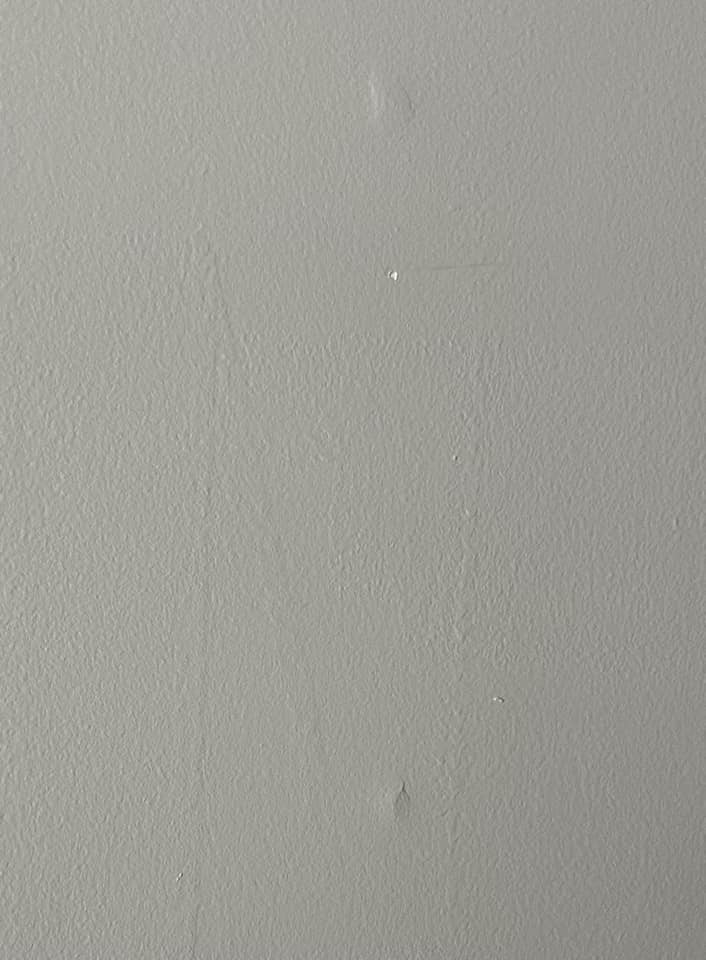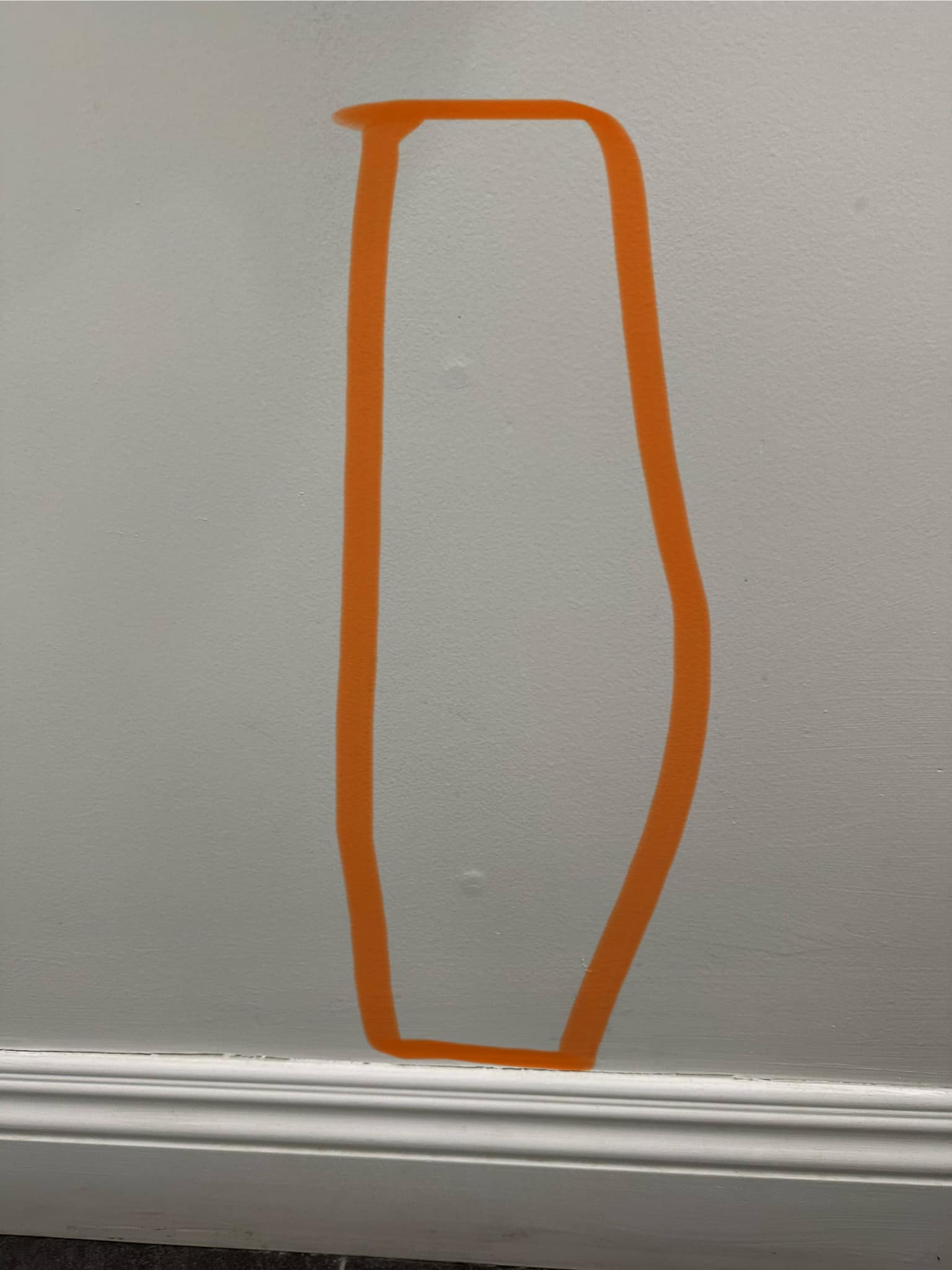Should I be concerned about raised areas forming on my drywall in various places around my home, even though the house was built in 1961 and has undergone significant renovations with no structural issues present?
7 months ago
Last Updated: November 9, 2024
I’ve been seeing these raised areas popping up on the drywall in various spots around my house. Any idea what might be causing them and should I be worried? The house is from 1961 and has had some major renovations, but nothing to the structure. These bumps didn’t show up until years after the renovations were completed. Appreciate any advice you can give!



Those appear to be the screws securing the drywall. No need to worry. You can easily resolve this by scraping off the mud to reveal the screw. If it’s still below the surface, simply mud, sand, prime, and paint over it. If it’s protruding, just tighten it and continue ☺️
I bet the 60s were tough, but it sounds like the same procedure – locate it, remove the nail, and swap in a screw
Oh wow, I appreciate that! I totally overlooked that aspect of the description!
I had a similar issue before. It turned out to be a leaky pipe behind the wall. Is the drywall feeling soft at all? If so, that could mean it’s wet. I hope it’s not.
Is having issues in different parts of his house. I really don’t think a leaky pipe is to blame here.
That’s a huge assumption that could be expensive if you’re mistaken. That sort of bubbling doesn’t occur without exposure to extreme wetness or dryness. Check if the drywall is fragile or damp in any way. You need to start from the symptoms and work your way back to the cause, not the other way around. Like I mentioned, I thought it was screws or nails sticking out and it turned out to be a leaky pipe. Make sure that’s not the situation
A helpful tool to consider is a moisture meter, user-friendly for ruling out any leaks
I respectfully beg to differ with this portion of your statement; “That kind of bubbling doesn’t occur without being exposed to extreme wetness or dryness.” Nail/screw pops are quite common without needing to be “exposed to extremes” as you mentioned. I’ve repaired countless in houses where minor settling or poor installation were the culprits. If it’s occurring all over the house, it’s unlikely to be a leaky pipe.
Hey , in one of those pictures, you can clearly see the tape edges coming up. Saying not to check for water is misleading, especially since I had a similar experience and it turned out to be a slow leak. It’s better to err on the side of caution and check for moisture to be sure.
Hey Laura! Yup, all I’m saying is it’s a good idea to check for moisture first to rule it out. Learn from my mistake!
Nail pops happen when the drywall nails shift and cause cracks in the mud covering them. It’s usually due to normal house movement and nothing to worry about unless you notice significant buckling or gaps.
Those are called “floaters” – screws that didn’t catch onto anything and are now sticking out. They should’ve been taken out before plastering or taping/mudding. I suggest digging them out, spackling, and repainting.
It’s either what said or what said. It’s not a big deal, mainly just cosmetic and can be easily fixed.
When you paint the room next time, make sure to dig out any nail pops and re-spackle them.
Try using a screw above and below the one that has popped. Take out the nail or screw that has come loose.
Seems like nails are beginning to stick out
There might have been a problem with older drywall sagging, as the new one I purchased claims to be sag-proof, likely due to settling.
Drywall screws
I can totally relate, I had a similar issue with all nails. Removing them can be quite a hassle. What worked for me was pushing them in a bit further and placing a screw next to it. After that, I spackled or mudded over them, sanded, and painted. Just one of the joys of owning an old house, right? Haha!
Those are nail or screw pops. Just give them a gentle tap with a hammer, fill them in, and sand them down.
I’m about to jump in on the thread – I’m getting ready to paint a bathroom. Just earlier this week, I hammered in the nails, then used drywall screws above and below each pop. I applied spackle. I haven’t sanded or spackled again yet. Should I have removed the nails?? I could still do it if needed, but I really don’t want to 🤣
Not necessary
Thanks a lot, ! 😊
Simply hammer the nails down and patch up the hole.
Just to echo what others have mentioned, those are nails gradually coming loose from the studs (the walls vibrate enough during windy or stormy weather to cause this). This is why screws are now used for sheetrock instead.
I removed mine and replaced them with screws, then had to patch and repaint the walls… it wasn’t too difficult, I just did one wall at a time.
Did you have the same issue with the exterior walls too? I did with mine.
Poppers
Noticed some nail pops? No need to worry. Due to the house’s movement, nails tend to back out over time. Just remove loose drywall, tap them in, cover with joint compound, smooth, sand, and paint. Your wall will look good as new.
Oh no, screw pops!
I’ve always known them as nail pops, . But where I’m from, seismic activity isn’t a big concern.
In Canada, , we typically use drywall screws. Are nails more common in the US?
At , we also use screws in the US, but if this house is older, it might have nails.
Dealing with some nail pops? Simply tap them down lightly, secure with screws in between, then proceed to mud, sand, prime, and paint. It’s a minor inconvenience, but easily fixable.
If they’re in bad shape. Then remove the nails and opt for screws. Apply putty, sand, and then paint. In my view, stainless steel is the way to go. I’ve seen rusty nails seeping through. Galvanized would also work well.